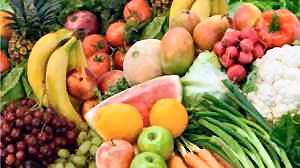
By Jean Blish Siers *
Last week, the U.S. Department of Agriculture released its latest dietary guidelines for the American people. There was good news for some of us (Yippee, eggs are good!) but bad news for all of us: According to USDA data, about half of American adults (or 117 million people) have one or more preventable chronic disease. And about two-thirds of us (nearly 155 million people) are overweight or obese. (You can read their executive summary here.) This isn’t something, obviously, happening to someone else. We all have a stake in improving the health outcomes for everyone.
The newest guidelines stress the dangers of too much sugar, too many refined carbohydrates, and processed foods in general. It sites nutrition experts who find that we would benefit from replacing those processed foods with simple, unprocessed fruits and vegetables. “Poor dietary patterns, overconsumption of calories, and physical inactivity directly contribute to these disorders. Second, individual nutrition and physical activity behaviors and other health-related lifestyle behaviors are strongly influenced by personal, social, organizational, and environmental contexts and systems. Positive changes in individual diet and physical activity behaviors, and in the environmental contexts and systems that affect them, could substantially improve health outcomes.”
It’s great that the report acknowledges barriers to access: “Both policy and environmental changes also can help reduce disparities by improving access to and availability of healthy food in under-served neighborhoods and communities.”
This is a solid first step in working to remove those barriers. Society of St. Andrew volunteers know there is, literally, a hunger for the fresh fruits and vegetables we bring into underserved communities. Food dollars (whether SNAP benefits or a too-small pension check or a minimum-wage paycheck) don’t go far enough to include the very foods recommended by the USDA. And too many communities lack access to full-service groceries, meaning residents options are often limited to the refined foods the USDA hopes to discourage.
Society of St. Andrew will continue our work to bring healthy food to those most in need, and we urge policy makers to begin the hard work of removing barriers to the healthful food choices that make healthy people.
* Jean Blish Siers is SoSA’s Charlotte Area Gleaning Coordinator, and a current contributor to this News & Events blog.
FEB
2015

